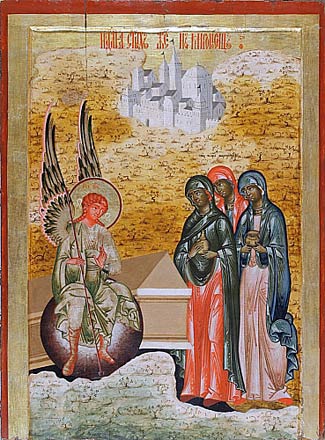Rev. Molly F. James, PhD
DFMS Noonday Prayer
Thomas Gallaudet & Henry Syle, August 27, 2020
May God’s Word be spoken. May God’s Word be heard. May that point us to the living Word who is Jesus Christ our Lord. Amen.
Our Diocesan Offices used to be located in a large house on Asylum Avenue in Hartford. I always thought this was an odd name for a street, as I assumed it referenced some long ago insane asylum in Hartford. The Asylum Hill neighborhood is a notable one, it contains the homes of Harriet Beecher Stowe and Mark Twain. But the Asylum in the name is not for an insane asylum, it is for the “The American Asylum at Hartford for the Education and Instruction of the Deaf & Dumb Persons” founded in the early 1800s. That school is now known as The American School for the Deaf and is located a few blocks from my house in West Hartford. It is actually quite fitting that our Diocesan Offices used to be on Asylum Ave, for the School for the Deaf and the history of the Episcopal Church in CT (and beyond) are very much linked. Today we remember and honor two priests, Thomas Gallaudet (whose father founded the School for the Deaf) and Henry Syle, who was the first deaf priest in The Episcopal Church.
Our Church has a long history in ministering with the deaf community through education and various parish based ministries. I am finding that history and the examples of Thomas and Henry to be helpful in nuancing my reading of today’s Gospel. Of course, as one might expect today we get a story of Jesus healing a deaf man. I will admit to finding these healing stories challenging. They are wonderful and glorious, of course. But I cannot help but think of people I know who have been blind or deaf who would have loved to have such a miracle cure. They never did.
How are we supposed to sit with that? How are we supposed to sit with any seemingly insurmountable problem for which we desperately desire a quick and simple solution? If only Jesus were here to instantly fix whatever is wrong. Don’t we wish that were true!
This is where I think the lives of Thomas and Henry are so helpful. No doubt we (and probably they too) wish for miraculous solutions to the difficulties we face. And yet they do not always happen. So what did Thomas and Henry do? Did they sink into a deep depression and give up? No, they did what they could. And what they could was a lot. Their ministries educated and empowered people who were often at the margins of society, particularly in a time when there was no technology for hearing aids or cochlear implants.
So I think sometimes we get to be Jesus. Sometimes we encounter challenges that we have exactly the skills to handle. I feel extraordinarily grateful that my children are still at the age where almost all their difficulties can be solved with a conversation and a lot of hugs. I know the days will come (no doubt sooner than I would like) when that will no longer work or even be a welcome solution. They will face difficulties that I cannot fix.
On those days, and whenever any of us encounter a problem that is beyond our skill set. I hope we will remember Thomas and Henry. We are not always called to make a problem disappear. Sometimes we are called to educate and empower. Sometimes we are called to walk with people and support them in learning to live with a new reality.
This can be a struggle for those of us who love to fix things and have neat and tidy solutions. It can feel like a failure for us to be unable to make everything better. Thomas and Henry invite us to reimagine our definition of success. They invite us to remember that healing is about wholeness and the fullness of life, not necessarily about erasing a disease or impediment. Thomas and Henry remind us that the fullness of life is possible, even in the face of personal challenges or conditions that society would label as “other.” It is possible because we are a people of faith, and because we are blessed with teachers, mentors, friends and companions on the way who will help us figure out our own version of thriving.
God is always inviting us to be a people of hope, to find new life. May we always have the grace and courage to accept that invitation. Amen.



.jpg)

.jpg)

